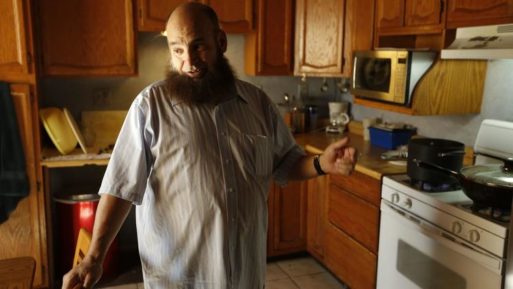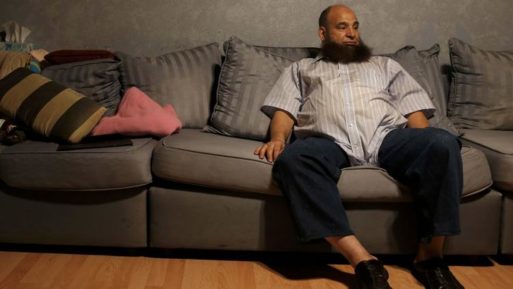Most people will not take in foster children at any time in their lives. It’s a difficult thing to care for a child for most of their life, only to see them leave (possibly forever) once they become an adult. But Mohamed Bzeek, a foster parent in Los Angeles County, is drastically different than most foster parents: He only takes in terminally ill children.
Bzeek is originally from Libya and immigrated to the United States in 1978 to pursue a degree in higher education. He eventually met his wife, Dawn, here. Dawn had become a foster parent in the early 1980s before she met Mohamed. Mohamed and Dawn started caring for foster children together in 1989. Then, in 2015, Dawn died.

Mohamed Bzeek takes in terminally ill foster children
Credit: Genaro Molina / Los Angeles Times
The Bzeeks took in scores of foster children throughout the years, and by the mid-1990s they decided to take in only terminally ill children. Mohamed has lost ten kids since then. Some of them even died in his arms.
Bzeek’s first time dealing with the death of a foster child was in 1991. The young foster girl was born with a spinal injury because her mother had breathed in toxic pesticides while pregnant. The baby girl wore a full body cast, and lived less than a year before she died.
One boy Bzeek cared for had short-gut syndrome. He was admitted to the hospital 167 times during his short eight-year life.
“The key is, you have to love them like your own,” Bzeek said in a recent interview with the Los Angeles Times. “I know they are sick. I know they are going to die.”

Mohamed Bzeek
Credit: Genaro Molina/Los Angeles Times
“Only One Name We Think Of”
Melissa Testerman is a Los Angeles Department of Children and Family Services intake coordinator. Part of her work is to find placements for sick children. “If anyone ever calls us and says, ‘This kid needs to go home on hospice,’ there’s only one name we think of,” she said in a Los Angeles Times interview. “He’s the only one that would take a child who would possibly not make it.”
Bzeek is currently caring for a six-year-old girl whose rare brain defect has left her blind, deaf and paralyzed. His primary concern, apart from medically caring for her (a nurse also works in his home during the week), is to let her know that she is not alone in this life. He does everything he can to console her. She suffers from daily seizures and only responds to touch.
“I know she can’t hear, can’t see, but I always talk to her,” he said in the LA Times interview. “I’m always holding her, playing with her, touching her. … She has feelings. She has a soul. She’s a human being.”
Dr. Suzanne Roberts is the girl’s pediatrician at Children’s Hospital Los Angeles. According to Roberts, by the time the girl was 2 years old doctors had said there was nothing more they could do to improve her condition. Despite this, the doctor believes that the girl has lived as long as she has mainly due to Bzeek’s care.
“When she’s not sick and in a good mood, she’ll cry to be held,” Roberts said in an interview with the LA Times. “She’s not verbal, but she can make her needs known…Her life is not complete suffering. She has moments where she’s enjoying herself and she’s pretty content, and it’s all because of Mohamed.”
Many people in Los Angeles consider Mohamed to be a hero of sorts. But he does not think of himself in that way. “I am not an angel, I am not a hero,” he said in an interview with PBS. “It’s just what we are supposed to do, as a human being.”

 Foster Parent Only Takes in Terminally Ill Foster Children
Foster Parent Only Takes in Terminally Ill Foster Children


 The Spiritual Symbolism of Cardinals
The Spiritual Symbolism of Cardinals
 Meaning-Focused Grief Therapy: Imaginal Dialogues with the Deceased
Meaning-Focused Grief Therapy: Imaginal Dialogues with the Deceased















